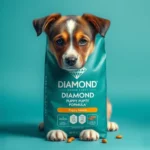
Introduction
In the world of canine care, dog nutrition plays a crucial role in ensuring our furry friends lead healthy and happy lives. Just like humans, dogs require a balanced diet filled with essential nutrients to thrive. As pet owners, we often search for tasty and nutritious treats to enrich our dogs’ diets, and one such treat that has gained popularity is sunflower seeds.
This article aims to clarify whether dogs can eat sunflower seeds, delve into their nutritional value, and discuss any potential risks associated with feeding them to your dog.
Understanding Dog Nutrition
Basic Nutritional Needs of Dogs
Dogs, being omnivorous, require a balanced intake of macronutrients: proteins, fats, and carbohydrates.
- Proteins are vital for growth, development, and muscle maintenance. They are the building blocks for tissues and play a significant role in hormone and enzyme production.
- Fats provide a concentrated source of energy and are essential for healthy skin and coat. They also assist in the absorption of fat-soluble vitamins (A, D, E, and K).
- Carbohydrates serve as a quick energy source and can help support digestive health through fiber.
In addition to these macronutrients, dogs also need various vitamins and minerals for optimal health. These nutrients contribute to immune function, bone health, and overall well-being.
Common Human Foods Safe for Dogs
Many pet owners enjoy sharing their meals with their dogs, but it’s essential to be cautious. Some human foods are safe and nutritious for dogs, including:
- Carrots
- Blueberries
- Sweet potatoes
- Green beans
- Plain cooked chicken or turkey
While these foods can be beneficial, it’s crucial to offer them in moderation and as part of a varied diet to prevent nutritional imbalances.
What Are Sunflower Seeds?
Nutritional Profile of Sunflower Seeds
Sunflower seeds are small but mighty, packed with nutrients that can benefit both humans and dogs. Here’s a breakdown of their nutritional profile:
- Fats: High in healthy fats, particularly polyunsaturated fats, which are good for heart health.
- Proteins: A decent source of plant-based protein, which can contribute to a dog’s daily protein needs.
- Vitamins: Rich in vitamin E, an antioxidant that supports skin health and immune function.
- Minerals: Contains essential minerals such as magnesium, phosphorus, and selenium, which play critical roles in various bodily functions.
Health Benefits of Sunflower Seeds
For humans, sunflower seeds are known to promote heart health, reduce inflammation, and support skin health due to their high levels of antioxidants and healthy fats. When it comes to dogs, the potential benefits include:
- Supporting skin and coat health due to the omega fatty acids.
- Providing a natural source of energy.
- Contributing to overall well-being when served in moderation.
Can Dogs Eat Sunflower Seeds?
Safety Considerations
When considering whether dogs can eat sunflower seeds, the first question that comes to mind is their safety. Sunflower seeds are not toxic to dogs, making them a safe snack option. However, there are some considerations to keep in mind:
- Choking Hazards: Whole sunflower seeds, especially unshelled, can pose a choking risk, particularly for small breeds.
- Salt Content: Many commercially available sunflower seeds are salted. Excessive salt can lead to sodium ion poisoning in dogs, so it’s crucial to choose unsalted seeds if you decide to offer them as a treat.
- High Fat Content: While healthy fats are beneficial, too many can lead to obesity or pancreatitis in dogs, especially those prone to weight gain.
Recommended Serving Sizes
When introducing sunflower seeds into your dog’s diet, moderation is key. A few seeds per week can be a safe starting point, depending on your dog’s size and dietary needs. For example:
- Small dogs: 1-2 seeds
- Medium dogs: 3-5 seeds
- Large dogs: 5-10 seeds
Always monitor your dog’s reaction and consult with your veterinarian for personalized advice.
How to Introduce Sunflower Seeds into a Dog’s Diet
Preparing Sunflower Seeds for Dogs
If you decide to give your dog sunflower seeds, proper preparation is essential. Here are some best practices:
- Shelled vs. Unshelled: Shelled sunflower seeds are safer as they eliminate the choking hazard associated with whole seeds. Always remove the shells before offering them to your dog.
- Salted vs. Unsalted: Choose unsalted sunflower seeds to avoid any health risks associated with excess sodium. Always read labels when purchasing pre-packaged seeds.
Signs of Allergies or Sensitivities
When introducing any new food, including sunflower seeds, observe your dog for any signs of allergies or sensitivities. Symptoms can include:
- Vomiting or diarrhea
- Itching or skin irritation
- Swelling of the face or paws
- Lethargy
If you notice any of these signs, discontinue feeding sunflower seeds and consult your veterinarian.
Alternatives to Sunflower Seeds
Other Nut and Seed Options
If you’re looking for alternatives to sunflower seeds, several other nuts and seeds can be safe and nutritious for dogs. Some options include:
- Pumpkin seeds: High in fiber and beneficial for digestive health.
- Peanut butter: Rich in protein and healthy fats, but choose unsalted and xylitol-free varieties.
- Cashews: Safe in moderation, providing protein and healthy fats.
Healthy Treat Alternatives
Incorporating sunflower seeds into homemade dog treats can be a fun way to provide a nutritious snack. Here are a few simple DIY dog treat recipes:
Sunflower Seed Dog Treats
Ingredients:
– 1 cup whole wheat flour
– ½ cup sunflower seeds (shelled)
– 1 egg
– ¼ cup peanut butter
– ¼ cup water
Instructions:
1. Preheat your oven to 350°F (175°C).
2. Mix all ingredients in a bowl until a dough forms.
3. Roll out the dough and cut into shapes.
4. Place on a baking sheet and bake for 20-25 minutes or until golden brown.
5. Let cool before serving to your dog.
Pumpkin and Sunflower Seed Biscuits
Ingredients:
– 1 cup pumpkin puree
– 1 cup oats
– ½ cup sunflower seeds (shelled)
– 1 egg
Instructions:
1. Preheat your oven to 350°F (175°C).
2. Combine all ingredients in a bowl until well mixed.
3. Scoop out small portions and shape into biscuits.
4. Bake for 15-20 minutes until firm.
5. Cool before serving.
Conclusion
In summary, dogs can eat sunflower seeds, and when prepared correctly, they can be a healthy addition to your dog’s diet. The key takeaways include choosing unsalted, shelled seeds and offering them in moderation. Always keep an eye on your dog for any adverse reactions, and consult your veterinarian if you have concerns about introducing new foods.
As responsible pet owners, it’s essential to prioritize dog nutrition and ensure that any treats are given thoughtfully. Feel free to share your experiences with sunflower seeds or any other dog treats that have worked well for you!
Frequently Asked Questions (FAQs)
Are sunflower seeds good for dogs?
Yes, sunflower seeds can be a nutritious treat in moderation, providing healthy fats and proteins.
Can dogs eat sunflower seed butter?
Yes, sunflower seed butter is a safe alternative to peanut butter, but ensure it’s unsalted and free from xylitol.
What should I do if my dog eats a lot of sunflower seeds?
If your dog consumes a large amount of sunflower seeds, monitor for any signs of distress or gastrointestinal upset and consult your veterinarian.
How can I tell if my dog is allergic to sunflower seeds?
Watch for symptoms like vomiting, diarrhea, itching, or swelling. If these occur, discontinue feeding sunflower seeds and consult your vet.
References
- [Veterinary Nutrition Sources]
- [American Kennel Club on Dog Nutrition]
- [Nutritional Studies on Sunflower Seeds and Canine Health]









